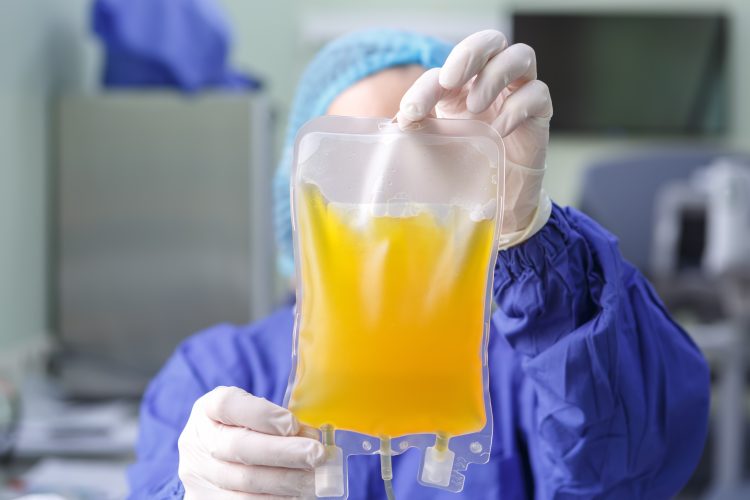US expands COVID-19 convalescent plasma treatment trials
Posted: 23 September 2020 | Hannah Balfour (European Pharmaceutical Review) | No comments yet
Operation Warp Speed and the NIH are funding the expansion of two trials evaluating the efficacy of convalescent plasma therapy in hospitalised COVID-19 patients.


The US National Institutes of Health (NIH) are funding the expanding enrolment of two randomised, placebo-controlled trials evaluating convalescent plasma as a treatment for hospitalised COVID-19 patients.
According to the NIH, preliminary observational studies indicate that convalescent plasma may improve outcomes among severely ill and hospitalised patients with COVID-19. However, further evidence from well-controlled randomised trials is needed to generate sufficient data on whether convalescent plasma is an effective and safe treatment for COVID-19.
Convalescent plasma therapy is a passive immunity treatment in which blood plasma taken from patients recovering from SARS-CoV-2 (the virus which causes COVID-19) infection is infused into patients still suffering with the disease. The premise is that the convalescent plasma contains antibodies that can recognise and neutralise the virus, as well as other components that may contribute to an effective immune response.
“The evidence on convalescent plasma as a treatment for severe cases of COVID-19 is promising but incomplete. We need to carry out rigorous randomised control clinical trials to determine how this therapy can improve outcomes,” said NIH Director Dr Francis Collins. “While the world waits for an effective vaccine, it is vital that we simultaneously expand the options for available treatments for those currently suffering from the worst effects of this disease.”
The trials expect to enrol hospitalised patients across the US at academic and community-based hospitals. Participants will be randomly assigned to receive the treatment or a placebo. Outcomes will be compared with respect to clinical improvement measures and resource needs, such as ventilators. Both trials are currently enrolling participants.
The trials are receiving $48 million in support through Operation Warp Speed (OWS), the National Center for Advancing Translational Sciences (NCATS), will oversee the grant awards through its Clinical and Translational Science Awards (CTSA) Program research network. The CTSA’s Trial Innovation Network (TIN) will also play a key role in working to add study sites and enrol patients, including those from communities disproportionately affected by COVID-19.
The trails being expanded are:
- The Convalescent Plasma to Limit COVID-19 Complications in Hospitalized Patients (NCT04364737), launched in April by New York University (NYU) Langone Health in New York. NYU is partnering with The University of Texas Health Science Center at Houston and the University of Miami to enrol approximately 1,000 hospitalised patients 18 years or older with respiratory symptoms of COVID-19 at sites in Texas and Florida. The trial is primarily assessing clinical improvement at 14 and 28 days and also will be evaluating outcomes based on mortality, intensive care unit admission and patient antibody concentrations.
- The Passive Immunity Trial of Our Nation for COVID-19 (NCT04362176) expanding to enrol about 1,000 participants. Vanderbilt University Medical Center in Nashville launched the trial in April and will now have access to approximately 50 additional clinical trial sites across the CTSA Program. Participants for this trial are 18 years or older with acute respiratory infection symptoms and laboratory-confirmed SARS-CoV-2 infection; they may be hospitalised or in an emergency department and likely to be admitted. The trial will primarily assess clinical improvement at 15 days and evaluate ventilation use, supplemental oxygen use, acute kidney injury and cardiovascular events.
Related topics
Related organisations
National Center for Advancing Translational Sciences (NCATS), New York University (NYU), The University of Texas Health Science Center, University of Miami, US National Institutes of Health (NIH), Vanderbilt University Medical Center









